Ph.D. (Interreligious Studies)
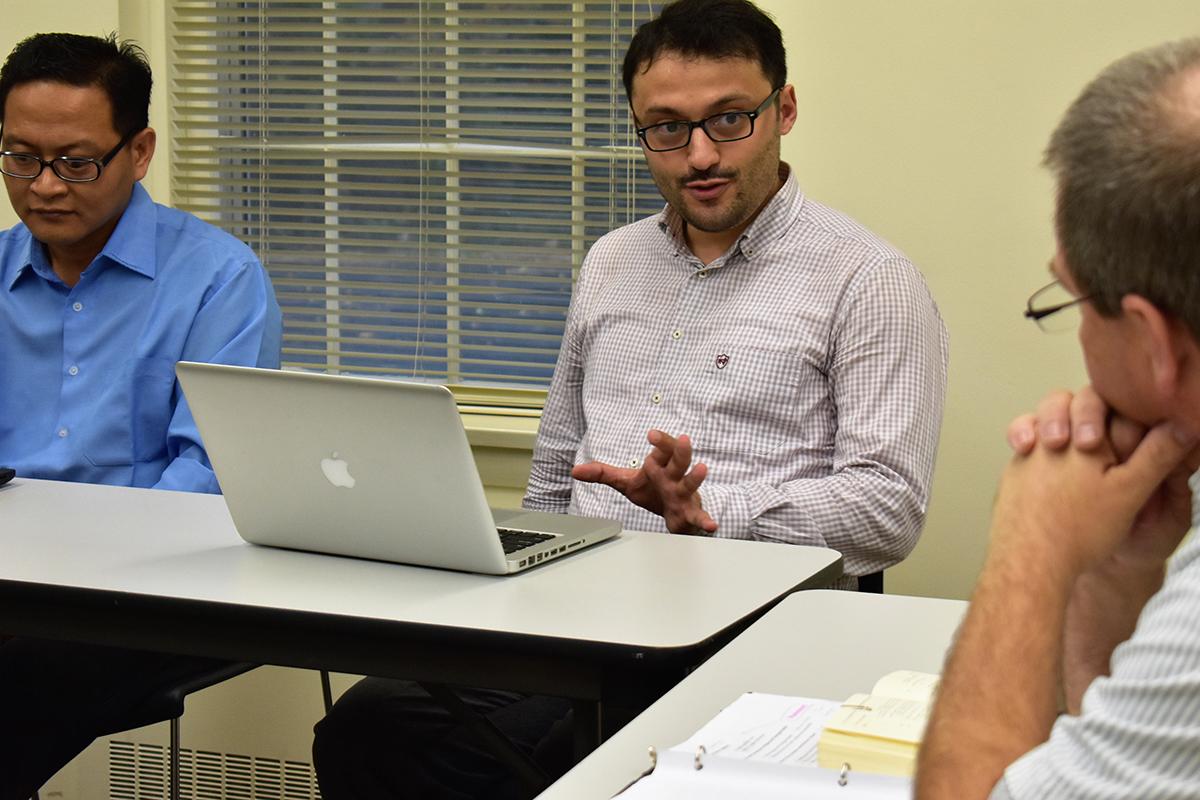
Hartford International University’s Ph.D. program provides advanced study in the knowledge and practical application of relations between religious traditions. Current areas of study include Christian-Muslim Relations, Contemporary Muslim Studies, Islamic Studies, Jewish Studies, and Christian Studies. Ph.D. graduates gain rigorous research skills and comprehensive knowledge in their field(s) of study, culminating in a dissertation that makes an original contribution.
Our Ph.D. program continues this long legacy of educating and training experts in various fields by providing exceptional candidates with the opportunity to complete a research-driven, highly customizable program of study under the method of interreligious studies. Students will acquire:
- comprehensive knowledge in their chosen discipline of study
- skills and competence to teach in these subjects in religious communities and academia
- ability to produce original research and written works to advance the scholarship for the benefit of religious communities, academy, and society
Program Structure
The curriculum is comprised of two first-year seminars; a first-year initial literature review; four tutorials, three methods/language courses, two comprehensive exams, a teaching portfolio, a dissertation proposal exam, a final dissertation, and oral defense. Each of the tutorials and methods/language requirements are customizable to the particular research needs of the student, under the guidance of a faculty mentor. This program has limited classroom instruction and places high emphasis on rigorous, supervised research and academic writing.
Residency is only required for two weeks each semester for Stage One. The remainder can be completed via synchronous online tutorials.
F-1 International Students who are legally residing in the US and need to meet residency requirements, must live within 50 miles of the campus and demonstrate through their tutorial contracts that they are meeting in person with their advisor.
-
Stage One: First-Year Seminars and Literature Review (18 Credits)
Students will complete four, 3-credit seminars during the first year of the program, and two, 3-credit literature reviews with their advisor. These courses are offered in a hybrid manner, with Fall and Spring semester two-week face to face intensive sessions, followed by hybrid synchronous sessions throughout the semester. For the hybrid synchronous format, students may be present in the classroom or remote.
The Research Methodology and Scholarly Development I and II seminars are focused on research design and culminate in the creation of a program research plan.
The Methodological Studies in Jewish/Christian/Muslim Relations I and II seminars provide the necessary scriptural, historical, and theoretical foundations to support student identification of issues directly related their specific research interests.
Literature Review I and II are taken under the direction of the student’s faculty mentor. This requirement is intended to demonstrate broad mastery of the literature relevant to the student’s specific research and the identification of an opportunity for an original contribution to research along with the theoretical or conceptual framework(s) the student expects to use in making this contribution.
Stage One culminates in a program research plan based upon the chosen field of research and methods of approaches to the religious traditions. All students are expected to register for a full-time course load in the first year, and residency during this stage is recommended, but not required. However, all students are required to be present on campus for two weeks in the Fall semester and for two weeks in the Spring semester for the required seminar intensive sessions and for face-to-face advising sessions with faculty.
Stage One Curricular Overview
- Fall Semester (9 credits)
- Research Methodology and Scholarly Development I (PHD-900, 3 credits)
- Methodological Studies in Jewish/Christian/Muslim Relations I (PHD-906, 3 credits)
- Literature Review I (PHD-908, 3 credits)
- Spring Semester (9 credits)
- Research Methodology and Scholarly Development II (PHD-901, 3 credits)
- Methodological Studies in Jewish/Christian/Muslim Relations II (PHD-907, 3 credits)
- Literature Review II (PHD-909, 3 credits)
Stage Two: Initial Tutorials and Language/Methods Courses (18 Credits)
In stage two, students begin to refine their research plan and conduct the building blocks of their research projects, completing two tutorials and two methods/language courses.
Tutorials are directed writing projects that are customized to fit the student’s specific research focus and are supervised by HIU faculty or external faculty whose expertise matches the focus of the tutorial. Students will complete four tutorials total (6 credits each) through the program. These tutorials represent the building blocks of the student’s research. Tutorials provide the opportunity to engage the wider literature and use the research methods appropriate to their research plan. The outcome of a tutorial is usually a final paper between 40-60 pages in length. In some cases, with the agreement of their advisor, students may substitute the first two tutorials with credited graduate courses at HIU or BTI-affiliated institutions. The total number of credit hours taken for course work must equal 6 credit hours for each tutorial.
The Methods/Language Courses (9 total credits throughout the program) are customized to fit the students research plan and pre-program language competency. Scholars need linguistic tools to deal with primary sources and secondary scholarly literature to pursue the research. Students are required to acquire or demonstrate linguistic proficiency at the needed level of advanced level research in at least two languages. Students may take language courses at partner institutions (usually at the intermediary level) or pass a language comprehension exam. Those students with prior language skills and knowledge and will not need to complete one or more language requirements and may petition for Advanced Standing. The language requirements must be completed before the student’s research proposal defense.
In some cases, the student may choose to pursue focused and extensive engagement with a particular method or analytical approach related to their research. In these cases, the methods courses are expected to go beyond the methods literature and give students the opportunity to put their research skills into practice. Both the focused methods and language courses can be fulfilled via independent study or through graduate classes offered at HIU or the BTI in particular methodologies or languages.
Stage Two Curricular Overview (1 year full-time, or 2 years part-time)
- Fall (9 credits)
- Tutorial I (6 credits)*
- Language/Methods I (3 credits)
- Spring (9 credits)
- Tutorial II (6 credits)*
- Language/Methods II (3 credits)
*Or two 3-credit graduate level courses.
Stage Three: Comprehensive Exams and Dissertation Proposal Defense (6 credits)
Following the first round of Tutorial and Language/Methods coursework, students will be expected to complete their Comprehensive Exams and to defend a Dissertation Proposal.
Stage Three Curricular Overview (1 year)
- Fall (3 credits)
- Comprehensive Exams (3 credits)*
- Spring (3 credits)
- Dissertation Proposal (3 credits)*
*Students are considered to be enrolled full-time with a credit load of 3 credits per term in Stage Three when enrolled for their Comprehensive Exams and, then, in the subsequent semester, the Dissertation Proposal Defense.
Stage Four: Advanced Tutorials and Teaching Portfolio (18 credits)
Students cannot proceed to Stage Four until their Comprehensive Exams are passed and the Dissertation Proposal is approved. Thereafter, in Stage Four, students will continue with their Tutorials and will begin to assemble their teaching portfolio. The teaching portfolio (3 credits) will consist of a written teaching philosophy, evidence of pedagogical training, sample course syllabi, and experience as a TA or instructor.
Stage Four Curricular Overview (1 year full-time, or 2 years part-time)
- Fall (9 credits)
- Tutorial III (6 credits)
- Language/Methods III (3 credits)
- Spring (9 credits)
- Tutorial IV (6 credits)
- Teaching Portfolio (3 credits)
Stage Five (12 credits)
After passing the proposal defense, the student will move on to the dissertation stage of the program. Dissertations should be approximately 80,000-100,000 words, excluding bibliographies. Students will register 6 dissertation credits each in the first and second semester and will register for a 0-credit dissertation defense. Students who have not defended their dissertation by the end of the second semester will need to register for a dissertation continuation as they continue to work on the dissertation until it has been defended. Students are allowed up to a total of two years to complete and defend their dissertation. Students are allowed up to a total of seven years to complete the program.
Stage Five Curricular Overview (1-2 years)
Year Four
- Fall
- Dissertation Writing I and II (6 credits)*
- Spring
- Dissertation Writing III and IV (6 credits)*
- Defense (0 credits)
*Students are considered to be enrolled full-time with a credit load of 6 credits per term during their Dissertation Writing registration period in Stage Five.
- Fall Semester (9 credits)
-
Students will acquire:
- comprehensive knowledge in their chosen discipline of study
- skills and competence to teach in these subjects in religious communities and academia
- ability to produce original research and written works to advance the scholarship for the benefit of religious communities, academy, and society
These learning objectives will be assessed through a Ph.D. portfolio which includes supervised teaching at the graduate level and significant engagement with a community of scholars.
-
Application Deadline:
Completed Phase 2 applications are due by January 31st.
Application Process- Phase 1:
Research Proposal: an approximately 2,000 word proposal that includes the topic and scope of a proposed research project, including the proposed faculty member with whom the applicant wishes to undertake advanced level research. Once a faculty member has given preliminary approval of the proposal, the Office of Admission will send applicants the link to the full Ph.D. application.
To start your application, please click on the blue “Apply Online” button at the top of our Web site or, for mobile viewers, the “Apply” button at the bottom. Detailed instructions are listed there.
Application Process- Phase 2
All completed applications will be reviewed by the Ph.D. Committee. Applicants are required to have earned the Master of Arts in Religious Studies, Master of Theology, Master of Divinity, or an equivalent post-graduate degree from an accredited institution, prior to their enrollment into the program.
The following materials are required:
- Prior Education: Official transcripts from all previous institutions must be submitted to the Admission's Office. Applicants are required to present transcripts in English or accompanied by a certified English translation.
NOTE: Students with non-U.S. transcripts are required to submit evaluated transcripts completed by a credential evaluation service. We recommend The Evaluation Company (formerly SpanTran) as the most economical option for transcript evaluation. HIU will be notified directly when the transcript evaluations are completed.
- Writing Sample: a sample scholarly paper, thesis, or other publication.
- Approved Research Proposal: Applicants must resubmit their approved research proposal from the Phase 1 process.
- References: three academic letters of recommendation.
- English Language Proficiency: Students who do not have English as a first language, or as a primary language in previous academic studies, are required, prior to application, to take either the Test of English as a Foreign Language (TOEFL) examination and achieve a minimum score of 550 (written version), 213 (computer version) or 80 (internet version), the International English Language Testing System (IELTS) and achieve a minimum score of 6.5, or the Duolingo English Test (DET) and achieve a minimum score of 110 (or demonstration of completion of a previous degree in the English language).
- Prior Education: Official transcripts from all previous institutions must be submitted to the Admission's Office. Applicants are required to present transcripts in English or accompanied by a certified English translation.
-
HIU supports our top Ph.D. candidates with partial tuition grants and provides full tuition to a very limited number of applicants. These grants are determined and awarded once all candidates are reviewed after the application deadline. To be considered for federal loans, admitted students must submit the FAFSA (Federal Applicant for Federal Student Aid) and the HIU Scholarship and Grant Supplemental Form.
Where Your Journey May Lead
Ph.D. in Interreligious Studies
Teaching in a college, university, or seminary
Serving as a specialist for your religious community
Providing public leadership in non-profit, business, and interreligious settings
The Value of Experience

Mentoring
Hartford International University Ph.D. candidates have immediate access to mentors and advisors among our faculty. They have been where you are, and they are more than happy to share their experiences, their guidance, and their encouragement.
Faculty
Why choose Hartford International University’s Ph.D. program? Because you’ll have access to come of the best minds in the field of Islamic Studies and Christian-Muslim relations. We have, for example, the only faculty chair in North America devoted to Shi’a studies.
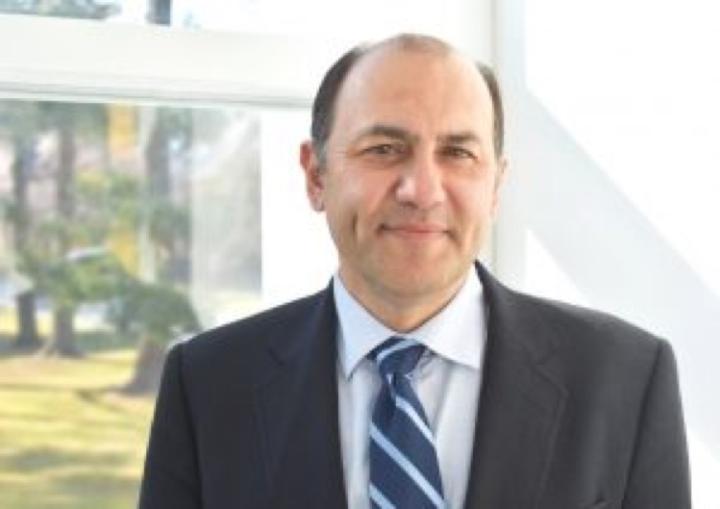
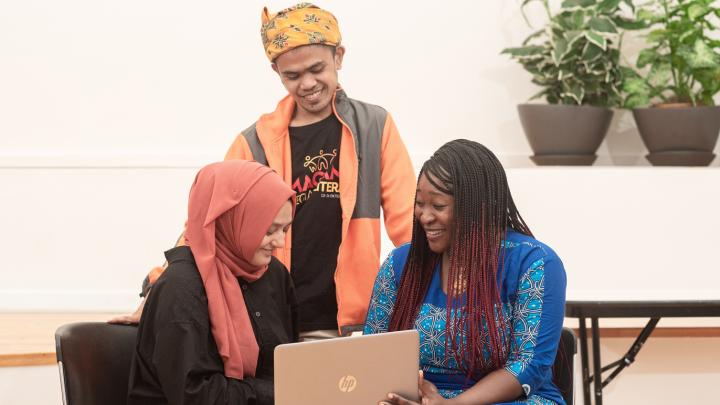
Research opportunities
Our Ph.D. candidates have access to our excellent library, along with online platforms around the globe. Learn with faculty members who regularly publish and present at conferences, including those of the American Academy of Religion and the Middle East Studies Association.
Admission Information
Completed applications are due by Jan. 31. The next cohort to be considered by the committee will be for Fall 2027.
Related Blog Posts

Building Interfaith Communities
Multi-partiality as a Path to Transformative Peace: Lessons from Constructive Conflict Intervention
Over the past few months, my understanding of multi-partiality has shifted from something abstract into something lived and embodied. The post Multi-partiality as a Path to Transformative Peace: Lessons from Constructive Conflict Intervention first appeared on Religion & Peace.
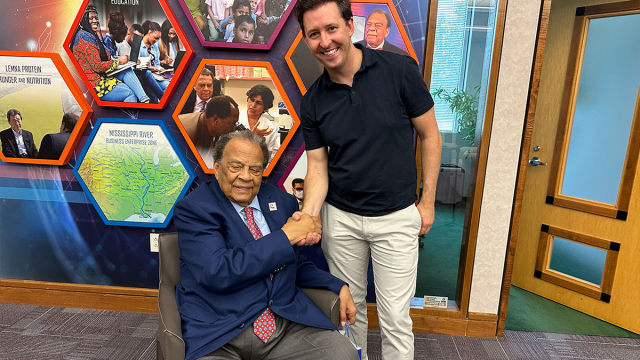
Building Interfaith Communities
Howard Thurman, Martin Luther King Jr., and Andrew Young: Three Men, One Mission
Last summer, I found myself standing in a quiet Connecticut tobacco field just outside of Hartford, guiding a drone across a vast landscape. The post Howard Thurman, Martin Luther King Jr., and Andrew Young: Three Men, One Mission first appeared on Religion & Peace.
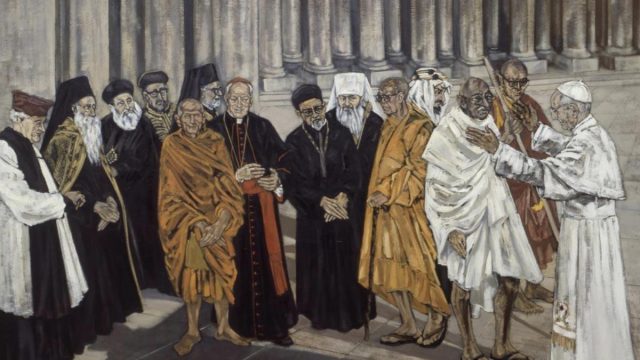
Interfaith & Interreligious Dialogue
Interreligious vs. Interfaith: Exploring the Similarities and Differences Between These Terms
“Interreligious” and “interfaith” are often used interchangeably, though some scholars, practitioners, and activists favor one term over the other. Learn more about how we define these two terms, their similarities, and their differences. The post Interreligious vs. Interfaith: Exploring the Similarities and Differences Between These Terms first appeared on Religion & Peace.
Take the Next Step
Broaden your perspective. Deepen your ability to make a difference. Hartford International University programs prepare religious leaders and peacemakers who go beyond their own beliefs to embrace people of all faiths.
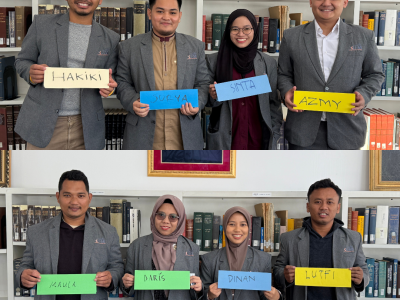
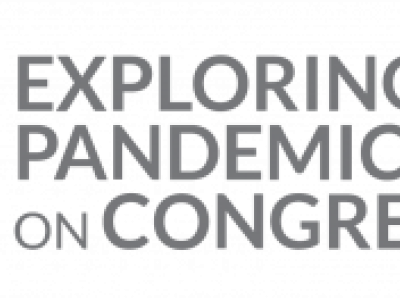

Alumni News
Former Board Chair and Alum, Bill Farley '97, Publishes a Book of Spiritual Insights
January 29, 2026
HIU alum and former Trustee Bill Farley ‘97, who chaired the Board for six years, recently published a book titled Taking the Big Risks. The book includes experiences from his time at Hartford International University. “It does have HIU references,” Bill said, “and particularly celebrates the profound effect that my dear friend, M.T. Winter, had on my life.”
Join our mailing list
Keep up with all the latest happenings at Hartford International.

